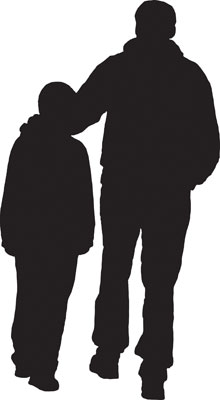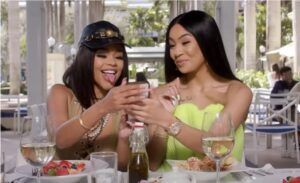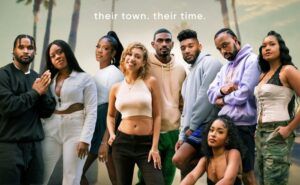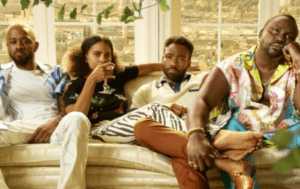In its simplest form, stereotypes can be defined as a fixed overly simplified image or idea of a particular person, place or thing. Though these images and ideas can fall under the realm of both negative and positive stereotypes, it is often the negative stereotypes that infiltrate and stigmatize our innate ability to meticulously investigate and explore the images and ideas that formulate our perceptions of the realities of human life. Especially African American fathers but African American’s in general have faced many stereotypes.
As an outwardly loving and caring African-American father I understand the jerk reaction that unconsciously permeates and disrupts the consciousness of those I come in contact with. I know from the look on their face that the generalized view is that Black fatherhood is more of an oxymoron than a reality. And based on the long-standing, concrete stereotypes in this regard, fighting against stereotypes will always be an uphill battle, a war where the quantitative data clearly and undoubtedly points to the fact that nearly 2 in 3 African-American children live in a fatherless home. One can also point to the media (newspapers, radio, television, and movies) that historically and continues to force feed the public a unilateral perspective with respect to the African-American male, a perspective that dominates the totality of the American human experience while respectively causing fixed embedded negative perceptions, images and ideas. Lastly, one can simply look inwards at what one believes to be the truth. Whether this truth is based on the aforementioned text, one’s personal experience or lack of experience, the saliency, the belief and the effort placed in determining the validity of the stereotype is ultimately left for the individual to determine.
I can only hope that the perception of the African-American male will change and that this change will come not from the researchers and social scientists, whose primary focus within the research is on white families, because these families are most familiar to the majority of them, or from a white male dominated media, who has the power to construct the black male image in a more positive light but fails to do so.
I no longer expect any of this to change. The change that I am looking forward to will come from the various organizations that are helping men to be better fathers to their children and better husbands to their wives. This belief comes not from some cloudy deep vision lodged in the chasm of my conscience. This belief comes from the work that I have done with fathers, the organizations that have successfully transformed boys into men. What I have witnessed within these organizations is an awakening of the significance of fatherhood, a place where men can talk, laugh and cry about their successes and their failures, and out of this, the one thing that I am most excited about is that I have witnessed the men themselves, through their transformation, deal a damaging blow to the stereotypical disposition of not just African-American fathers, but fathers in general.
In celebration of the success for these organizations I will continue my work, which is to challenge the research by writing thought provoking articles that provide a broader more comprehensive look into the dichotomy between the universal perception of fatherhood, and the unyielding perception and reality of the African-American father. I will write stories, create documentaries and public service announcements that provide an alternative perspective to the current perception of African-American fatherhood. Lastly, I will display my love for family to everyone that I come in contact with, thus leaving them with the choice to either lean lackadaisically on the stagnant, ambiguous and speculative nature of the stereotypical view of African-American fathers, or investigate and explore the images and ideas that will help to formulate a more authentic perception of this group’s reality.
David Asbery is doctorate candidate at St. John Fisher College. From more information visit David’s Website at www.davidleeshow.net
Readers Might Also Like:
[FIRST LOOK] Miasha Coleman’s ‘Secret Society 2: Never Enough’ Coming To Prime Video
[FIRST LOOK] ‘Send Help’, A New Dramedy Starring ‘Insecure’ Alum Comes To ALLBLK This August
[FIRST LOOK] ‘Sweet Life’ Season 2, Issa Rae Produced Reality Series Returns To HBO Max
[FIRST LOOK] ‘Atlanta’ Season Four Will Be the Show’s Final Run





